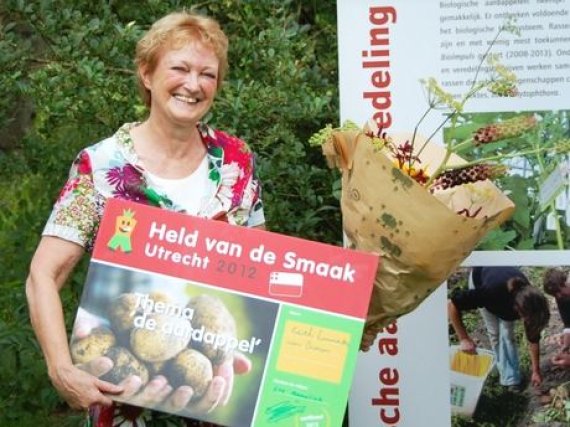Edith Lammerts van Bueren, professor by special appointment in Organic Plant Breeding at the university and the Louis Bolk Institute explains that this is the first set of potato varieties with resistance to the disease. There is an organic option using copper spraying, but that has been banned in the EU for some years now. So several plant breeding companies have been working on developing resistant organic varieties. The first generation of varieties now being presented, including the Bionica, only have single resistance, based on a single gene.
This kind of resistance is vulnerable, admits Lammerts van Bueren, because phytophthora continually mutates and has proven quite capable of overcoming resistance in potatoes. ‘So breeders must be very alert. As soon as potato plants are infected because their resistance has been broken, they must be burned immediately to prevent that variant from spreading.’ But she expects there will be potato varieties with two or three resistant genes within the next five years. This kind of multiple resistance is much harder to overcome for the fungus-like pathogen.
‘We are now working with 10 easy-to-crossbreed wild varieties, all of which have resistance genes. We are going to crossbreed them with standard varieties. Using molecular markers we will then find out which of their descendants have multiple resistance genes.’ It takes around 20 years to develop a new organic potato variety which is both tasty and resistant.

